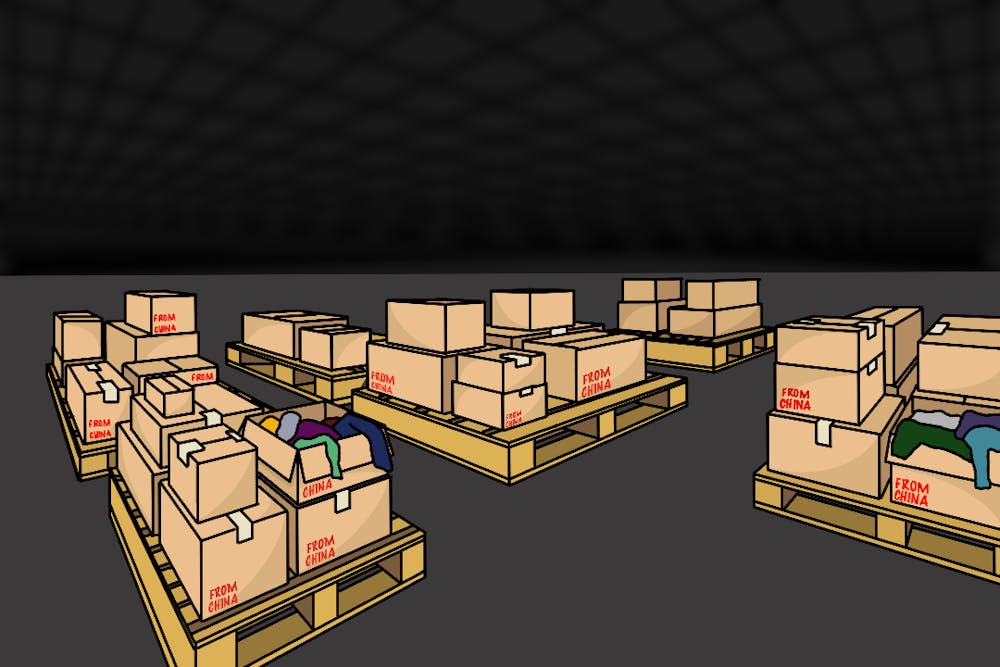Imported goods from China were temporarily held due to pending changes with trade policies earlier this month, ultimately leaving questions about future international consumer activity.
President Donald Trump put in place an executive order intended to end duty-free entry for certain Chinese goods on Feb. 4, only to put a hold on the order 12 hours later to give federal agencies time to sort out how to process millions of shipments. The United States Postal Service announced the day after the executive order that it would still be accepting international packages from China.
This policy was aimed at ending the "de minimis" trade rule that exempts merchandise under $800 in value from import duties and closer inspection. Companies like Shein and Temu used the "de minimis" trade rule to allow customers to order duty-free packages, keeping their cost of goods at inexpensive prices, according to Reuters.
READ MORE: Fashion's dirty secret: Cheap clothing and its towering environmental cost
Henry Thomson, an associate professor at the School of Politics and Global Studies, said over the last decade world governments have followed a pattern of protectionist policies, while the World Trade Organization has taken on a lesser role.
"Trade is much more ad hoc," Thomson said. "Countries have started slapping tariffs on things when it suits them. The United States, of course, but China has been doing the same. Europe has done the same."
The suspension of packages from China was part of President Trump's tariffs plan on implementing a 25% additional tariff on imports from Canada and Mexico and an additional 10% tariff on imports from China.
Gustavo Ventura, a professor in the Department of Economics, said when implemented, tariffs may act like a regressive tax and typically affect people of low income disproportionately.
"It's not that the tariff is designed to be like this, but (it) ends up being like this because of the consumption patterns of different types of people," Ventura said.
Due to the recent announcement and pausing of policies like 'de minimis,' there has been confusion among consumers across the country about how these policies will affect them.
In order to maintain profitability, exporting companies will often increase prices to pass the additional costs along to the consumer, Thomson said. This means that imported merchandise from China will likely see increases in prices as the trade battles continue.
The disruptions may also lead to an increase in wait times for products.
As more tariff policies are announced, consumers are left wondering how package arrival times on international goods such as technology and apparel will be affected.
"There's so much confusion and it makes it really hard for businesses to figure out what to do and that makes it more difficult for consumers to know what to do," said Naomi Ellis, a professor at ASU FIDM who teaches classes on the fashion industry.
Policies like the ones on Chinese imports have sparked confusion, causing experts to emphasize the need for transparency and consistency in trade policy to prevent further disruptions.
"I think everyone wants to know what they need to do to prepare, but it's all so confusing and changing day by day," Ellis said.
Edited by Senna James, Sophia Braccio and Katrina Michalak.
Reach the reporters at thutche1@asu.edu and kagore1@asu.edu and follow @kategore_17 on X.
Like The State Press on Facebook and follow @statepress on X.
Kate is a freshman studying journalism and mass communication. This is her second semester with The State Press.
Tiffany is a freshman studying fashion design in business administration. This is her second semester with The State Press.




